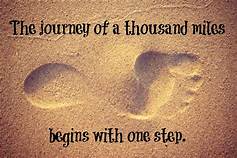What’s the hardest part?

For a kid who remembers the dread of giving presentations to classrooms full of my peers in school, it surprises even me how much I enjoy sharing my experience with others. I truly hope that those in the audience find these interactions of value. I know the parts that I find most enjoyable are the Q & A sessions after each talk. Perhaps it’s because I already know everything that comes out of my mouth or that I’m afraid of repeating myself (those Dr’s may have been on to something when I was warned of working memory deficits post-TBI), but I love that by answering questions I can be sure that whoever I’m speaking to is learning something that they want to know. It probably helps that I don’t embarrass easily, but even I found myself blushing when asked, “Can you still have sex?” by a middle schooler! Probably the most comical question came from a 3rd-grade boy who with complete innocence asked, “So if you have a brain injury, can you still think?” After some contemplation, I assured him “Yes, probably better than before.”
Come to think of it, “Questions asked to this brain injury survivor?” may be the title of a future book! While I’m not a prolific speaker with decades of experience and although I haven’t kept track, I would guess I’ve been involved in over fifty Q + A’s with one particular question that stands out: “What’s the hardest part of life after brain injury?” This question has been asked countless times in a few different variations (ie. Is the physical stuff (insert task here) hardest or are the cognitive challenges harder?). I’m sure all survivors could generate a lengthy list of the struggles faced in daily life post-injury, and to pick the hardest seems almost like counting the stars in the sky. It is interesting that over 14 years into my recovery, the last eight months have proven the most challenging, revealing something very interesting to me: Life itself constantly presents challenges, and now long after my accident, the hardest parts of my life have nothing to do with my injury.
While individuals going through similar struggles or dealing with losses that look the same can certainly provide invaluable support, often easing that horrific feeling of isolation, I find that struggle and grieving occur universally among humans. Compounding these struggles is the fact that life is lived by experiencing completely novel experiences, with even similar events happening to the present-day version of an individual. In other words we all change, so the same situation can affect each one of us in vastly different ways at different times. I’m really not trying to be a downer here, but life presents challenges to all of us, with brain injury survivors being eligible too. This is where the most frustrating or “hardest part” of life after brain injury exists for me: Having survived a severe traumatic brain injury and been blessed with the chance to make incredible progress in recovery, how is it that I still struggle to live life with joy and gratitude?
I guess I’m still human, that even after surviving a brain injury and recovering to a point that I can live what resembles a normal life, I still fall prey to poor reactions to circumstances from a surprising lack of perspective! This poor perspective or is especially puzzling: After all, shouldn’t each moment feel like a gift after surviving my crash? Wouldn’t even the disappointments of living life be a welcome change from the touch and go stage of early recovery? I’ll save you the suspense, although I do have immense gratitude for the progress I’ve made, and even with a phenomenal support network, the last eight months have been the most difficult of my life. The Covid-19 pandemic combined with a broken heart reminds me that we’re all doing the best we can and to BE KIND: After all, everyone is enduring struggles that we know nothing about.